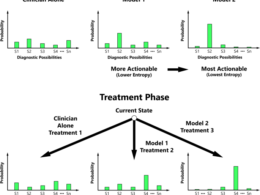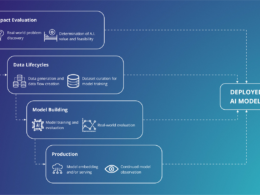What is the message?
AI technology, particularly generative AI and chatbots, is revolutionizing medical visits by reducing administrative burdens and improving patient-doctor interactions.
Early adopters at Mass General Brigham and NYU Langone Health demonstrate significant potential in AI’s ability to enhance medical practice.

This summary is based on the article “Your doctor (and ChatGPT) will see you now. A peek into AI-assisted medical visits”, published by USA Today and written by Karen Weintraub on May 11, 2024.
EXECUTIVE SUMMARY
What are the key points?
Adoption of AI Technology:
Dr. Rebecca Mishuris and her team at Mass General Brigham are piloting AI applications to transcribe and summarize patient visits, significantly reducing documentation time.
NYU Langone Health is also exploring AI’s use, emphasizing a cautious, research-driven approach to implementation.
Benefits and Impact:
AI tools allow doctors to focus more on patients during visits, improving patient-doctor relationships.
AI transcription and summarization reduce the time spent on electronic health records, addressing a major cause of physician burnout.
Challenges and Concerns:
Previous digital transitions, such as the shift to electronic health records, faced significant backlash from both patients and doctors.
Ensuring AI-generated notes are accurate and reflect the necessary clinical nuances remains a concern.
There is a risk of losing the deeper understanding that comes from manual note-taking.
Initial Feedback and Results:
Early feedback from doctors using AI tools has been positive, with many reporting reduced documentation burdens and improved work-life balance.
Preliminary data from NYU Langone shows AI can simplify medical notes to be more understandable for patients.
Future Directions:
Further research is needed to determine the specific contexts in which AI tools are most effective.
Expansion into other areas, such as AI-generated patient emails and home monitoring, is being considered.
Focus on providing AI benefits to underserved populations to ensure equitable access to technological advancements.
What are the key examples?
Mass General Brigham: Dr. Mishuris reports a drastic reduction in documentation time, allowing more direct patient interaction.
NYU Langone Health: AI-translated notes from a 12th-grade level to a 6th-grade level, improving patient comprehension.
What are the key statistics?
Burnout Rates: 63% of healthcare workers reported burnout at the end of 2021, up from 38% in 2020.
Efficiency Gains: AI transcription allows doctors to complete visit summaries in 2-3 minutes, compared to much longer manual entry times.
Comprehension Improvement: AI-generated notes were simplified in 87% of cases, compared to 13% when written by doctors.
Conclusion
AI-assisted medical visits show great promise in enhancing the efficiency and quality of healthcare delivery.
While early results are promising, further research and careful implementation are essential to fully realize AI’s potential in medicine.
Ensuring both doctors’ and patients’ comfort with the technology will be crucial for its widespread adoption and success.
To read the original publication, click here.











